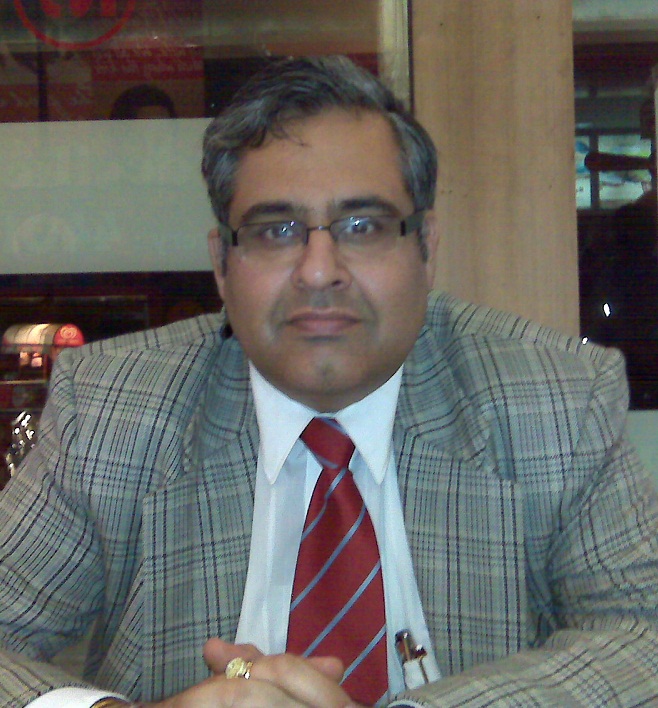Stress expert Dr. Shiv Dhawan on how to truly overcome stress


Due to the fast paced environment we live in, many of us show signs of not being able to cope with stress. However, the most common response to this is to ignore these signs and carry on – sometimes at an even faster pace. In the following article, stress expert and author Dr. Shiv Dhawan provides you with exclusive insights into what can happen if you continue to lead a life filled with stress, what you can do to finally face stress and how to change your perspective on what is really important in life. Take a look!
1. You just published your new book “Finding a panacea for stress – Move from stress to distress” with bookboon.com. How is this book so very different from other books already available?
The current body of knowledge in the stress management domain treats the subject from either a statistical or a conceptual perspective. This book is different. It follows a problem solving approach. It starts out by indicating that stress is something within our control – it is our reaction to external stimuli. It thus is a matter of attitude and personality.
It is a behavioural or attitudinal misalignment with external situations and events. The book thus illustrates the ways and methods to overcome stress, by understanding its causes, its working and also lifestyle changes that need to be made in order to acquire the appropriate personality traits that enable us to face various situations without becoming dysfunctional or out of sync.
Basically, we may not be able to change the situations we are facing, but we can certainly change the way we approach and manage them. That is where this book provides insights into practical and virtually free solutions and attitudinal changes and exercises which can be carried out as part of life-as-usual. The approach is that of an operating manual for living life.
2. Your being Indian, would the thoughts apply only to people who belong to the Asiatic region? What makes the insights globally applicable?
The problem of stress in the form of misalignment with external situations is the same in each and every corner of the world. Therefore, diagnosis and solutions described herein are universal in their application. The insights are relevant to people from any part of the world, in any country, any organization, any neighbourhood, they could be our best friend, our boss, our father, our brother, our spouse or from any other part of the globe – in other words simply the typical location agnostic human time bomb- ready to explode anytime due to inability to cope with stress.
3. At the beginning of your book, you talk about the death of two of your colleagues. How did these events change your perception of stress and of what is really important in life?
Frankly, I was not leading too different a life from my colleagues who died prematurely, one through a sudden heart attack and the other by committing suicide. The first feeling was one of shock and rage. Shock because we were all doing mundane/routine things just before they died: One was having a bath, the other was driving home. Rage set in when the realisation dawned that none of this was sudden. There were tell-tale signs that both were not being able to cope, only that none of us could really interpret those signs properly.
The first thing I realised that the greatest insecurity is financial insecurity. I immediately revisited my savings, sat with my auditor and assessed exactly how I need to invest to keep abreast with inflation and support myself in the event of a lay-off. This gave me an idea exactly how long I had at all costs to hang into my job and therefore develop a thick hide.
I mentally convinced myself that designations and roles don’t matter eventually- what matters is that I am enjoying what I am doing and am earning adequately to fund life as I want to live it. Therefore, whether I became Vice President or CEO did not really matter since I told myself that I was just working to put the children through college and live the balance years of my life according to my own blueprint-which did not require the approval of anyone else except my partner in life, my wife.
4. In your many years of experience with stress, what was the most common reason for stress?
This is difficult to appoint. What is stressful to one person may not be so for another. Generally, common and well-known stressors are situations like job pressures, family arguments, financial pressures, never having enough time to do things that one desires. Job and financial pressures arise on account of lack of focus and procrastination. Sometimes seemingly positive experiences like marriage and job promotion could be stress provoking events. Situations and external events by themselves are emotion-neutral, stress and strain is entirely due to how we perceive or relate to them. We need to have a balanced perspective in order to be able to deal with whatever life throws at us.
5. Do you recommend any short term and long term strategies against stress?
Generally, in the work space, stress can arise from lack of clarity about roles and expectations, bad time management, lack of anticipated preparation and often the bugbear of office politics. The only strategy (either short or long term) is to remain focussed on what is expected of you ,i.e., what your deliverables are, what support system you have and the time line in which to deliver. Once you have a handle on this, you are less likely to entertain negative thoughts. Furthermore, it is always wise to have a fall back option for supplementing your livelihood should the main source of income flounder for any reason.
Work-life financial pressures along with collateral pressures of family strife could cause stress. Here once again it is important to keep focussed, to prioritise expenditure and map to fund inflows. Proper exercise, eating and sleeping habits also contribute to reducing stress-proneness.
6. What is a physical exercise that can help against stress?
Virtually any form of exercise, from aerobics to yoga, can act as a stress reliever. If you like to run or walk, just go to your nearest park or start jogging on the sidewalk for free. Another way is parking your car at the furthest slot from your office door or mall entrance and walking briskly inside and using the stairs instead of the elevator. This way you could blend exercise into your routine life without eating into work time. Whatever you do, don’t think of exercise as just one more thing on your to-do list. Find an activity you enjoy — whether it’s an active tennis match or a meditative meander down to a local park and back — and make it part of your regular routine. Any form of physical activity can help you unwind and become an important part of your approach to easing stress.
7. Who is most likely to be affected by stress?
In Chapter 2 of the book you can see seven different personality types and their propensity to stress. Situations present themselves neutrally. People who are perfectionists, procrastinators or highly ambitious are more likely to either feel stressed or pass on stress to others. Those who have a tendency for negative auto-suggestion could also encounter stress. Those who suddenly realise that they possess neither the experience nor competency to discharge the role or task assigned to them could also fall victim to debilitating stress
8. Have you noticed a difference between men and women?
Globally, women may have considerably greater vulnerability to getting stressed due to role ambiguity ,i.e., being an office worker, wife, and mother at the same time. Sometimes personal career ambitions have to take a backseat to the spouse’s career or children’s upbringing. The working woman is then in a position of obvious role conflict and the relationship she establishes with her work and spouse depends largely on mutual expectations from one another on bearing and rearing of family.
Furthermore, mobility in a husband’s career progress makes it almost impossible for the wife to develop a working life of her own. This is on account of the fact that she could have difficulty attending necessary training courses through to the end, and may sometimes have to leave a job she enjoys, start again at the bottom of the ladder elsewhere not easily find work in her field in a new location. Depending on how individually women come to terms with this role conflict, any of the above could or could not result in stress.
9. Where does someone who decides to fight stress start?
With himself or herself. He or she takes a cold hard look at himself in the context of the challenge thrown up by any situation. He or she dispassionately ascertains whether he or she has the adequate competencies, clarity on expected outcomes, support systems and timelines etc., to deliver. If so, then he or she releases negative thoughts and feelings of inadequacy and ceases feeling stressed.
10. How can friends, partners or relatives help someone dealing with stress?
By reinforcing the fact that the individual does possess the necessary skills and competencies to deliver the assigned tasks without collapsing under stress.
11. Do you have a favourite anti-stress slogan?
Everything can be taken away from a man but one thing: the right to choose one’s attitude in any given set of circumstances. People may be bound by chains physically, but never in their minds.
Read more about what you ought to know about stress by downloading Dhawan’s free eBook “Finding a panacea for stress – Move from stress to distress”.



